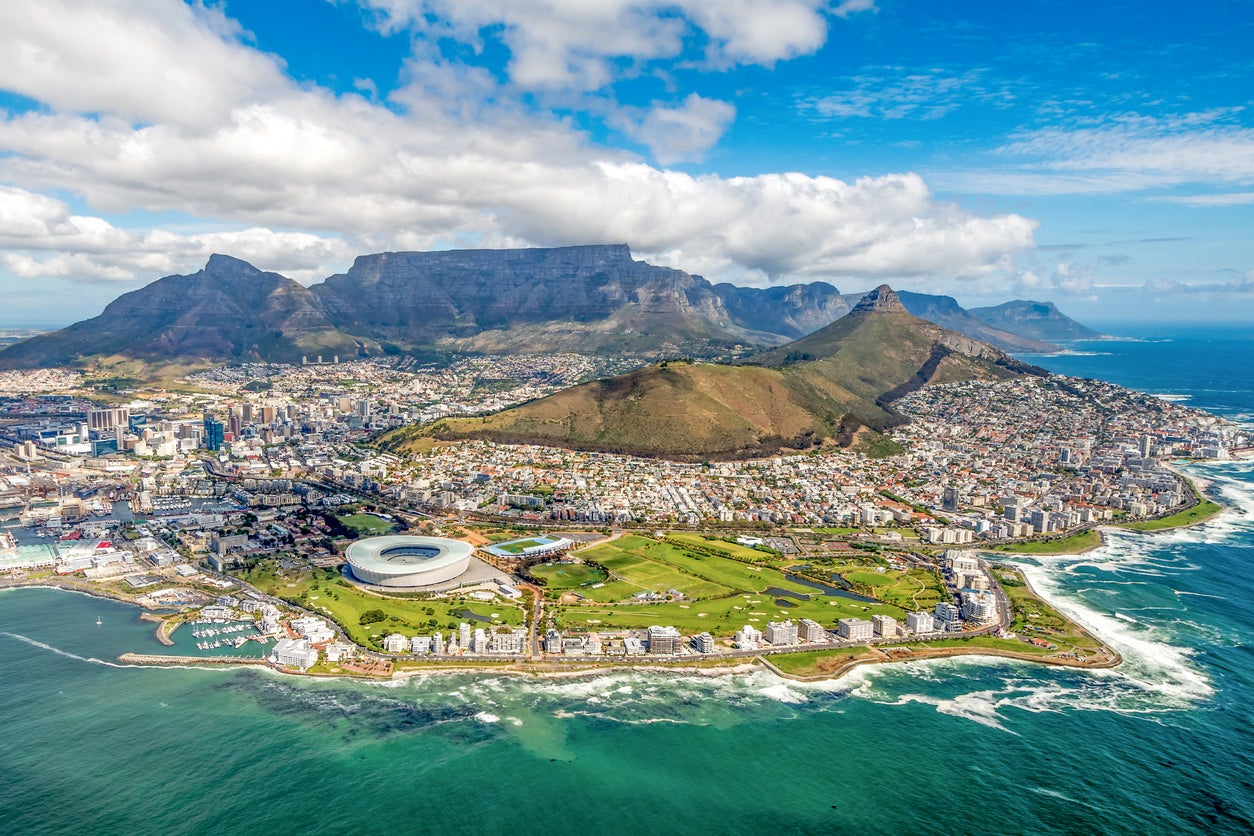How often will the red list be reviewed going forward?
Simon Calder answers your questions on travel restrictions, the traffic light system and trans-Atlantic trips


Q Any idea whether they are going to revise red list countries on a set schedule as before, ie every three weeks? Or are countries set now until January 2022? Any idea of when clarity on this might be shared? Apologies on reaching out to you, but a far better bet than this government.
Chris J
A Every time the government makes a significant announcement on changes to UK (or at least English) travel restrictions, some really important points seem to be left unaddressed.
So it proved last Friday when the transport secretary, Grant Shapps, made the most substantial changes since international leisure travel was legalised in May 2021. He gave details of the new rules on testing for travellers to England and revealed that eight countries will leave the “red list” – the highest risk category, from which 11 nights in hotel quarantine is obligatory. As your question implies, Mr Shapps also said that the rules would remain in place at least until the new year. This led many people to infer that the regular “traffic light” reviews, in effect since May, to shuffle countries between risk categories would end.
The future of the (roughly) three-weekly cycle was one of the first questions I asked of the Department for Transport after the announcement. Officials confirmed they would continue. The coming dates are all Thursdays, but in practice the announcement can be made plus or minus a day: 7 October, 28 October, 18 November, 9 December and 30 December (though I will be surprised if the last of these happens, falling as it does between Christmas and new year).
By the time of the next review, every country except Ireland will be on either the red list or the open list, which the government prefers to call “rest of the world”. I expect almost all of the changes to be moves from the red list – currently featuring more than a quarter of the world’s nations, and completely at odds with other European countries’ policies – to open. Keeping mandatory hotel quarantine for arrival from South Africa, all of South America and many other nations looks increasingly unsustainable.

Q My wife and I were delighted when the Maldives were taken off the red list as we are due to fly there on 27 October. Our delight was short-lived though when we heard the Foreign Office advises against all but essential travel to the Maldives. Our insurer has confirmed we would not be covered.
Are you picking up any vibes as to whether the Maldives might come off the FCDO’s own label red list? This inconsistency and lack of clarity as to the path ahead is even more frustrating than it has been waiting for the Department for Transport’s red list decision.
Paul O’C
A I love your term “FCDO’s own label red list”. This week the Maldives was one of eight countries removed from the red list operated by the Department for Transport (DfT); until Wednesday anyone arriving in the UK from the Indian Ocean archipelago was required to go into hotel quarantine for 11 nights.
Yet a different government department, the Foreign Office, still insists: “[We] advise against all but essential travel to the whole of the Maldives based on the current assessment of Covid-19 risks”. This is surprising as the DfT has just taken the archipelago off the list due, presumably, to a reduction of Covid-19 risks.
The Foreign Office stresses that it measures different parameters to the DfT. The FCDO is concerned with the risk to the individual traveller to the Maldives, and judges “there is an unacceptably high risk to an individual”.
The traffic light system aims to mitigate the overall risk to UK public health of inbound travel to the UK.
“We are monitoring the international situation closely and keeping our advice under constant review, so that it reflects our latest assessment of risks to British people,” the Foreign Office says.
It is entirely reasonable that the two would diverge in their perception of risk: the danger of terrorism is irrelevant to Covid measures. But it is frustrating and confusing that the two do not align on the key issue of coronavirus risk.
Anyway, given the eccentric previous performance of the Foreign Office (which warned for months against travel to Canada even though its Covid rates were way below our own), it is difficult to know when the travel warning may be retracted.

Q I live in England, but one of my nearest airports is in Wales: Cardiff.
If I flew to Cardiff from overseas, whose travel rules do I follow? How good are airline staff at understanding that there are four sets of rules in the UK and what will they expect before I board?
On the same subject – my mum lives in Wales. If we fly into an English airport what will be expected from my mum: Welsh rules or English rules?
David G
A The general rule: you follow the rules of the UK nation where you will finish your journey – usually your home. So if, as is entirely possible, the government in Wales keeps its testing rules the same as they are now, from 4 October you will be in an odd position.
Unlike most other people on the flight from Spain, Greece, etc, you will need therefore to test to fly before departure. I don’t imagine anyone at the airport will be interested in your certificate, but Welsh law (currently) requires it.
At present “day two” PCR tests are mandatory for arrivals to Wales and England, so that part is easy – for now.
For your mother, the reverse situation applies. She should follow English rules – and doing that could well be trickier. If Wales maintains a “test to fly” requirement, she may well be exempt if her final destination is England. But trying to explain that to an official at Alicante airport who has been ordered to check all the tests-to-fly could be a problem.
In terms of post-arrival tests: if Wales keeps its PCR requirement but England downgrades to lateral flow, which are cheaper, then your mother should just book the lateral flow test and finalise the passenger locator form accordingly. The completed form is what she needs to board a flight to the UK.

Q My flight from New York to London leaves on the evening of 3 October and arrives in the UK at 8am on 4 October. I understand the UK’s new restrictions go into effect during my flight. Would they apply to me – ie no need for a pre-departure test and a lateral flow test instead of PCR?
Jeff Z
A Just as those people who arrive in the UK after 4am today from former “red list” countries including Egypt, Turkey and Sri Lanka, you will be a beneficiary of a change in England’s testing rules.
The test is: what rules pertain at the moment the wheels on your flight touch the ground at Heathrow? You will arrive after 4am on 4 October. By then, assuming you are fully vaccinated in the US (or the UK, or one of 52 other nations), you will not be required to show a “test to fly”. Accordingly, even though your flight departs New York at around 1am UK time, when the existing rules are in force, you will not need to take and present a pre-departure test result. (If I were you, I would let the airline know that you do not intend to test before flying – I am sure they will be aware, but it can do no harm to explain your position.)
The final part of your question, however, is incorrect. Demonstrating its unceasing ability to complicate everything it touches in the field of travel restrictions, the UK government will apply no fewer than three different policies for fully vaccinated arrivals to the UK in the month of October.
The change on 4 October is solely removing the requirement for a test to fly.
The downgrading of the requirement for a post-arrival test from PCR to lateral flow takes place later in October, but there are few clues about the precise date.
So you will still need to take a PCR test. As you are landing at Heathrow, I urge you to take a test at Terminal 2 or Terminal 5 (depending on where you arrive). The “day two” label is misleading; the test can be taken on arrival or either of the two following days. And you should be able to get a test for around £60, conducted professionally for maximum medical value.
Email your question to s@hols.tv or tweet @simoncalder


Join our commenting forum
Join thought-provoking conversations, follow other Independent readers and see their replies
Comments